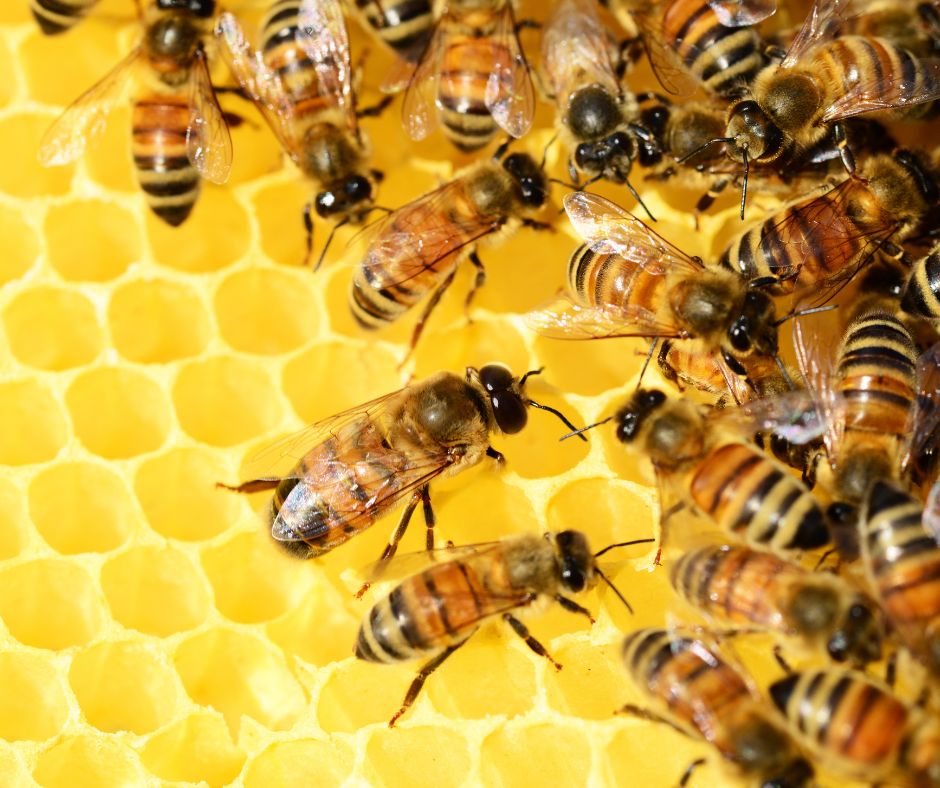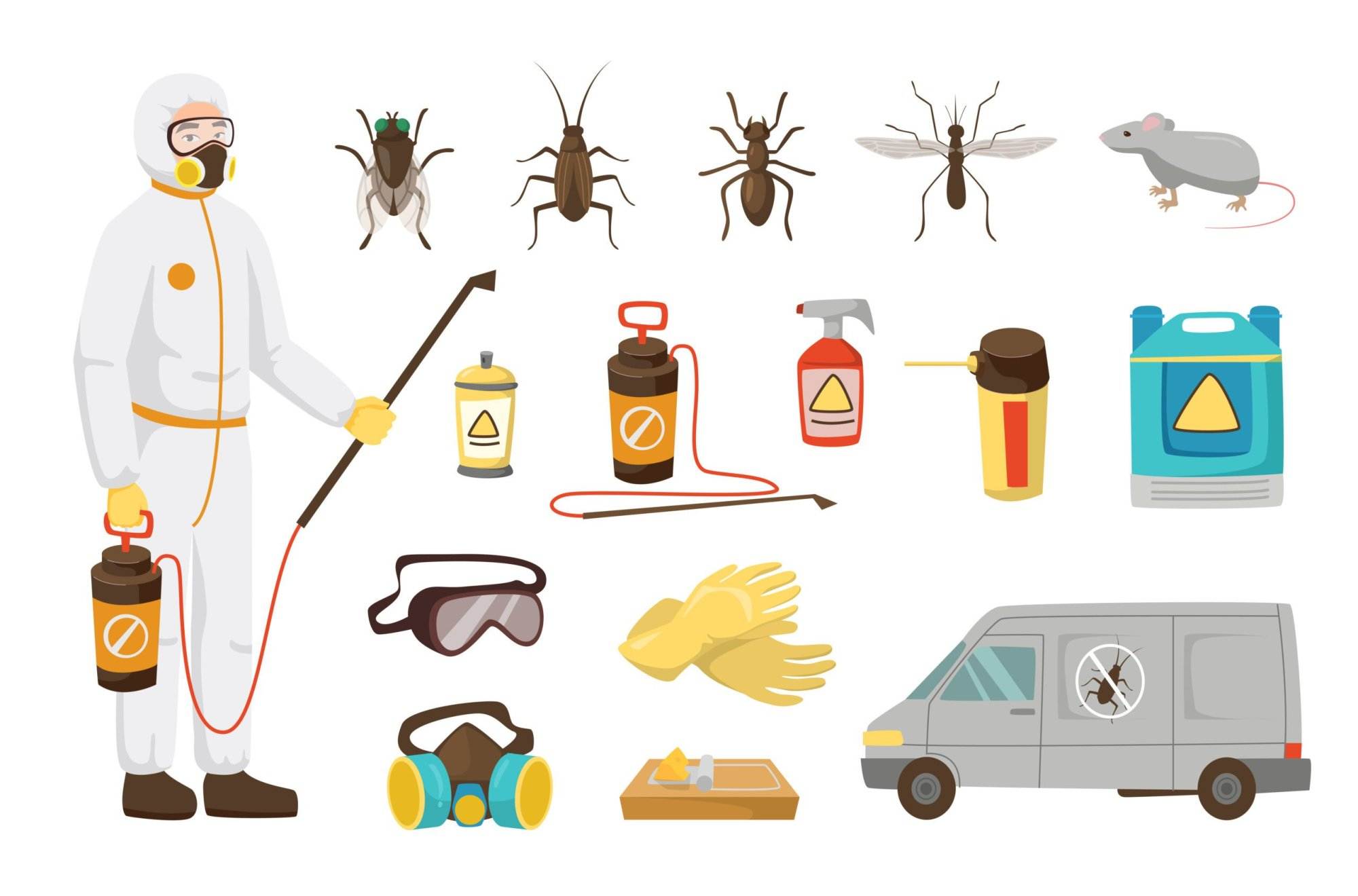Expert Bed Bug Exterminator Port Charlotte for a Peaceful Night’s Sleep Quality
Uncover the Significance of Bug Control in Maintaining a Healthy And Balanced Environment and Treatment Strategies

The Duty of Bugs in Ecosystems
Insects, commonly viewed exclusively as nuisances, play a diverse duty in communities that is crucial for maintaining environmental equilibrium. They contribute dramatically to different ecological processes, including pollination, vitamins and mineral cycling, and bug control. For instance, lots of insect varieties, such as bees and butterflies, are necessary pollinators for a vast array of plants, which subsequently supports biodiversity and food manufacturing.
Furthermore, pests act as victim for many killers, developing a vital web link in food webs. This interdependence makes certain the survival of various species and helps regulate populations within ecosystems (Termite treatment Port Charlotte). Decomposer insects, such as specific beetles and fungi, are instrumental in damaging down natural issue, therefore enhancing soil and promoting vitamins and mineral recycling.
On the other hand, while insects can be advantageous, their overpopulation or invasion into non-native environments might interfere with these ecological features. This complexity underscores the relevance of recognizing bug dynamics, as effective parasite management strategies have to think about both their environmental roles and potential effect on human tasks. Stabilizing pest visibility while decreasing damage is important for preserving the honesty of ecological communities and making certain agricultural efficiency.
Health Dangers Connected With Parasites
The existence of insects in various settings extends beyond their eco-friendly functions, as they additionally present substantial health threats to pets and people. Several insects, consisting of rodents, pests, and parasites, are providers of conditions that can have severe health implications. Rodents are recognized to send hantavirus and leptospirosis, both of which can lead to severe breathing and kidney concerns, respectively.
Bugs such as ticks and mosquitoes are notorious for spreading out vector-borne conditions like malaria, dengue high temperature, and Lyme condition. These diseases can result in high morbidity and death rates, particularly in prone populaces. In addition, parasites like vermins and cockroaches can intensify allergies and asthma, adding to breathing problems in individuals, particularly those with pre-existing problems.
In addition, the presence of pests can result in mental tension and discomfort, impacting overall well-being. Contamination of food and surfaces by insect droppings and stays can cause foodborne health problems, highlighting the value of maintaining sanitary conditions. For that reason, comprehending the health and wellness dangers connected with insects is important in acknowledging the necessity of effective parasite monitoring methods to secure animal and human health and wellness.

Benefits of Effective Insect Control
Efficient pest control is crucial for maintaining a healthy and balanced and risk-free atmosphere, as it consistently minimizes the countless threats connected with bug infestations. One of the key benefits of effective bug management is the decrease of health and wellness threats.
Additionally, reliable insect control safeguards residential or commercial property and frameworks from damages. Numerous parasites, like termites and woodworker ants, can create considerable architectural damage that may call for expensive fixings. By proactively handling these services, invasions and home owners can secure their financial investments.
Another considerable benefit is the improvement of general lifestyle. A pest-free environment contributes to psychological wellness and minimizes stress and anxiety related to infestations. Efficient bug control cultivates a more secure setting for pet dogs and children, guaranteeing that homes stay shelters complimentary from dangerous chemicals and disease-causing microorganisms.
Common Pest Control Strategies

In the realm of bug management, numerous methods are employed to deal with invasions effectively. These methods can be broadly categorized right into 3 main techniques: cultural, mechanical, and chemical controls.
Social control includes modifying methods to reduce parasite survival, recreation, and establishment. This might include plant rotation, proper cleanliness, and environment adjustment, which jointly produce a setting much less helpful to pest proliferation.
Mechanical control uses physical methods to eliminate insects (Termite treatment Port Charlotte). Methods such as vacuums, catches, and obstacles are frequently made use of to straight get rid of parasites from a location. This technique is particularly effective for managing rodents and bugs without making use of dangerous chemicals
Chemical control entails the application of chemicals to handle bugs. These compounds can be categorized into fungicides, pesticides, and herbicides, each targeting particular kinds of parasites. It is crucial to use these chemicals deliberately, sticking to security guidelines and regulations to minimize potential injury to non-target types and the environment.
Each pest control strategy has its benefits and limitations, and typically, an incorporated method combining numerous methods yields the most effective outcomes in keeping a pest-free setting.
Sustainable Pest Monitoring Practices
Lasting insect monitoring methods incorporate a variety of techniques developed to minimize environmental influence while successfully controlling parasite populations. These techniques prioritize making use of eco-friendly techniques over chemical pesticides, thereby minimizing the risk of damage to non-target species, consisting of useful pests, wildlife, and humans.
Integrated Bug Management (IPM) is a keystone of lasting methods, incorporating biological, social, mechanical, and chemical tactics to handle parasites. Biological control includes presenting all-natural predators or bloodsuckers to suppress insect populaces. Social practices, such as plant turning and polyculture, interfere with pest life cycles and improve environment strength.
Mechanical methods, such as obstacles or catches, can properly prevent parasite gain access to without chemical treatment. In addition, keeping healthy ecological communities through go now correct dirt management, plant health, and biodiversity can naturally mitigate bug concerns.
Education and learning and recognition are vital components, empowering areas and people to identify parasite hazards early and apply safety nets. Termite treatment Port Charlotte. By promoting an all natural approach that balances insect control with ecological integrity, sustainable parasite monitoring methods not only safeguard crops and frameworks but additionally add to a much healthier atmosphere for future generations
Conclusion

Recognizing the health dangers connected with bugs is essential in identifying the need of efficient insect monitoring his explanation strategies to protect animal and human health.
Efficient bug control is essential for preserving a safe and healthy environment, reference as it consistently minimizes the many dangers associated with pest problems.Integrated Bug Administration (IPM) is a cornerstone of sustainable methods, incorporating biological, social, mechanical, and chemical strategies to manage parasites. By comprehending the role of parasites, acknowledging associated wellness dangers, and utilizing diverse treatment methods, a lasting approach to pest monitoring can be accomplished. Integrated Pest Monitoring (IPM) emphasizes an all natural method that mitigates injury to useful microorganisms while successfully regulating parasite populations.